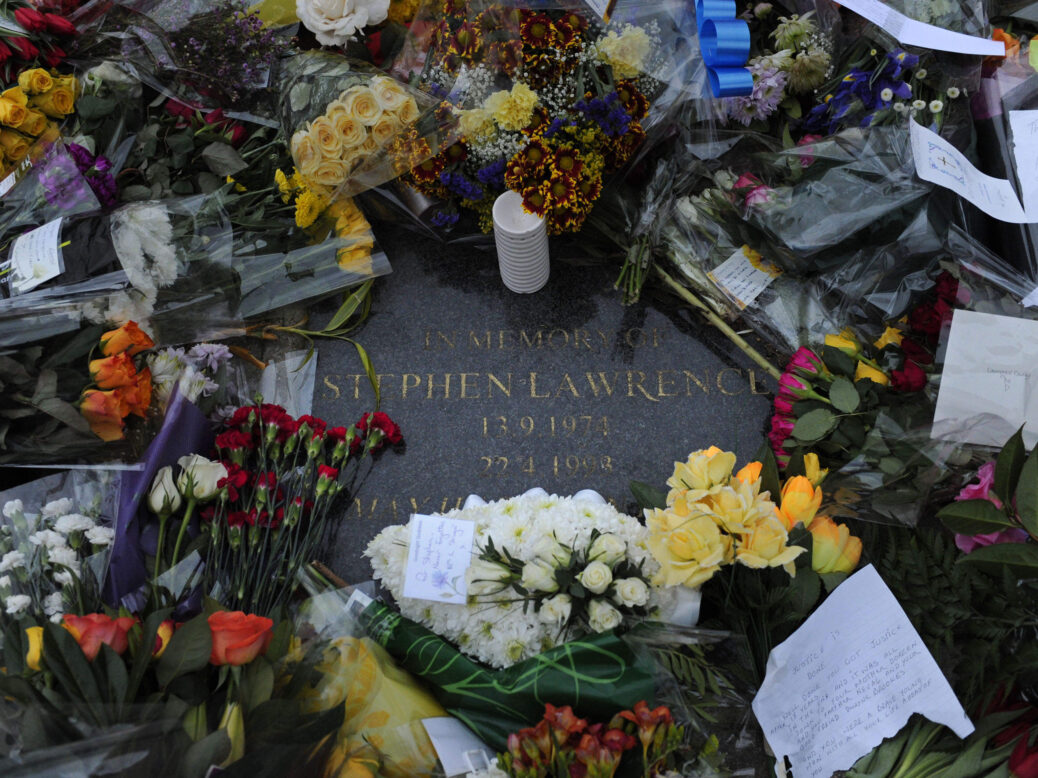
The memorial marking the 25th anniversary of Stephen Lawrence’s death was a profoundly sad occasion. On 22 April 1993, an aspiring architect – a young black man – who died in an unprovoked racist attack. The occasion was a sombre affair attended by the Lawrence family and friends, young beneficiaries of the Stephen Lawrence Trust, as well as the Prime Minister, Prince Harry, Meghan Markle, Jeremy Corbyn, Mayor Sadiq Khan and many other dignitaries. It was clear from the speeches and the readings that Stephen’s death has had a profound effect on the national conscience. The Prime Minister’s announcement at the memorial that from next year Britain will commemorate Stephen Lawrence Day on 22 April was welcomed with rapturous applause.
It’s not clear yet what the Stephen Lawrence Day will look like, although of course Stephen’s mother, Baroness Doreen Lawrence, and the Stephen Lawrence Charitable Trust will undoubtedly have a big say in this. But from the passionate speeches given at the memorial, it is clear it should be a day that celebrates both how far we have come with race relations and reflects on how much further we have to go.
As Doreen Lawrence reminded us, the weight of history is on our shoulders. It took six years, two failed convictions (due to a botched and corrupt investigation by the police) and an inadequate public inquiry – which found no evidence of racism in the police investigation – before the Macpherson report in 1999 finally labelled many of policing policies and practices as wittingly (or unwittingly) “institutionally racist”. Despite the turgid pace of the investigation, this observation was groundbreaking – even if it had long been noted by black and ethnic minority communities across public and private sector areas in Britain.
As a result of the Macpherson report, there was a major overhaul of the way police deal with murder inquiries (including working with the families affected. The 1976 Race Relations Act was extended to all public sector organisations, including the police through the 2000 Race Relation (amendment) Act, and abolishing the “double jeopardy” rule. It was this which allowed for Gary Dobson and David Norris to be tried again, and eventually convicted for Stephen’s murder in 2012. These changes arguably paved the way for extending hate crime to include matters of religion, sexuality and disability.
It will be important to commemorate achievements like these on Stephen Lawrence Day. Not only is it about trust and confidence in public institutions, it’s also about sending a signal to the public that everyone’s life – regardless of “colour, culture or ethnic origin” is of equal value.
But equally it will be important to reflect on what we have not achieved in race relations as a country. Public confidence in the police is not shared equally across all ethnic groups, and continues to be low for black communities. As recently as last year – 24 years after Stephen Lawrence’s death – black people were six times more likely than their white counterparts to be stopped and searched for drugs, and more likely to be arrested and charged even though they use illegal drugs less than their white counterparts. Other recent research showed that black and ethnic minority children were more likely to be arrested than their white counterparts, even though they were more likely to be victims of crime.
It’s also important to understand that racism and racial discrimination continues to blight the life chances of people from visible BME communities across all areas of life. Had Stephen Lawrence still been alive he would have been half as likely to get an interview for a job as a white candidate with the same qualifications, three times more likely to be unemployed and four times more likely to be sent to prison for a crime compared to his white counterparts.
The current levels of hate crime, racial harassment and bullying across society (and within schools) will also be important to take stock of on Stephen Lawrence Day. The significant rise of race and religious hate crimes post-Brexit is of huge concern. It is hugely worrying that of the 80,393 hate offences in 2017, 78 per cent were race hate crimes. We still have far to go.
At the memorial, the Reverand Rose Hudson-Wilkin spoke about how it is possible to make “medicine out of poison”. The Stephen Lawrence Day could be about celebrating Stephen’s life, his legacy as a person of colour growing up in this country, but also the obstacles and the negativity that BME people experience on a daily basis in different aspects of their life. It should be about celebrating achievements of young and old people in different ethnic communities, the importance of identity, and our shared multicultural and Commonwealth history. It should teach school pupils the history of racism and anti-racism but also offer hope to those in challenging circumstances that their lives will get better and that they can succeed. Racism took away Stephen Lawrence’s life, but we can prevent it from blighting another or taking it away altogether.
The Prime Minister’s announcement of the Stephen Lawrence Day is a very important signal to society. All lives – black lives – matter. But being at the memorial, I was reminded of the loss more than anything else for the Lawrence family.
“I always think of the positive things that have come out of it [Stephen’s death and the Macpherson inquiry] but if I could change it, I would give anything to be back to where we were in 1993 before he died,” Doreen Lawrence told the BBC in a recent documentary. “I don’t think any of these things really matter compared to what I’ve lost.”
Dr Zubaida Haque is Research Associate at the Runnymede Trust. She tweets at @zubhaque






